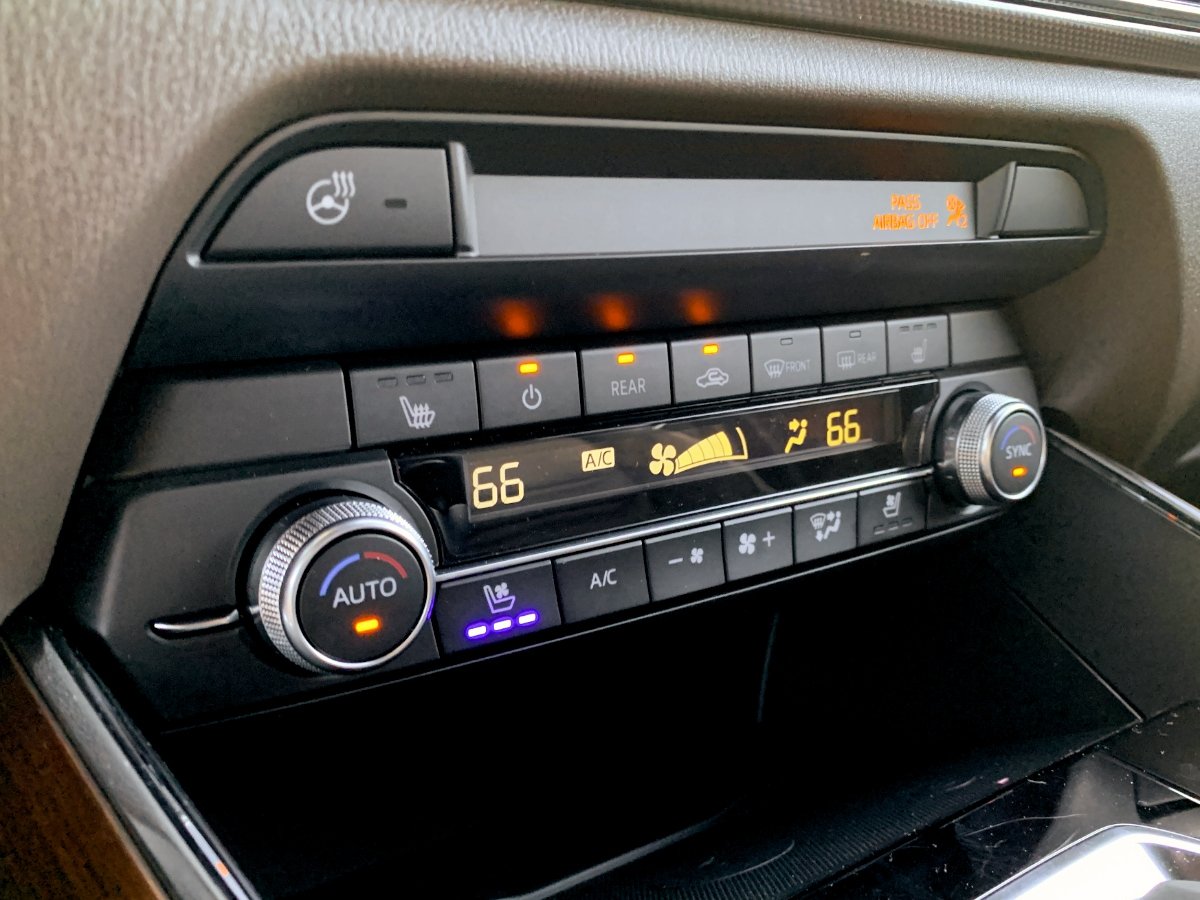Last Updated on June 19, 2023 by Ryan
Low Freon in a car air conditioner can cause a number of symptoms. The most common symptom is reduced airflow from the vents, which could be caused by clogged condenser or evaporator coils, a clogged expansion valve, or even low refrigerant levels. Another symptom is warm air blowing out instead of cool air.
This may indicate that there isn’t enough pressure for the system to properly cool down the cabin. As well as this, another symptom is strange noises coming from the AC compressor when it turns on – this could mean that there’s not enough lubrication within the system due to lack of refrigerant. Lastly, if you notice an unpleasant smell coming from your AC vents then this too can be an indication of low Freon levels in your vehicle’s system.
If any of these symptoms are present it’s important to get your car checked immediately before further damage occurs and repairs become more expensive.
Low Freon in a car air conditioner is one of the leading causes of AC issues, and it’s important to be aware of the signs. Symptoms of low freon can include decreased cooling power and warm air coming out instead of cold, as well as strange noises when the system is on and a musty odor emanating from the vents. If you suspect that your car has low freon, it’s important to take it to a professional for an inspection right away so you can get any necessary repairs done before summer arrives!
Signs And Symptoms Of Low Car AC Refrigerant
What Happens When Your Car Ac is Low on Freon?
When a car’s AC is low on Freon, the air conditioner will not be able to cool effectively and may produce warm or lukewarm air. If the issue persists, it could lead to compressor failure due to excessive heat buildup within the system. To fix this problem, you must have your car serviced by an automotive technician who can diagnose and repair any leaks in the system and recharge it with new Freon gas.
It’s important for safety reasons that Freon levels remain at their optimal levels so that your vehicle’s AC continues function properly.
How Do You Know If Your Ac Just Needs Freon?
It is not always easy to tell whether or not your air conditioning unit just needs Freon. If the AC unit is blowing warm air, it could be a sign that it’s low on Freon. Other signs include if you hear a loud hissing noise coming from the outdoor compressor, if there are ice crystals forming near the indoor evaporator coils, and if your energy bill has suddenly increased without any apparent reason why.
To determine for sure whether or not your AC unit needs more Freon, contact an HVAC professional who can inspect and diagnose the problem accurately.
How Often Does Freon Need to Be Replaced in Car?
Generally speaking, it is not necessary to replace Freon in cars on any set schedule. The only time you should consider replacing the Freon is if your car’s AC system experiences a loss of pressure or has an obvious refrigerant leak. Without regular maintenance and care, the Freon levels can start to decrease over time due to normal wear-and-tear.
In most cases, a qualified technician should inspect the system annually for signs of leakage or low pressure, at which point they may recommend topping off or even replacing the Freon as needed.
How Do I Check the Freon Level in My Car Ac?
It is important to check your car’s Freon level in order to ensure that it is working properly and will provide the desired cooling effect. To do this, you’ll need a refrigerant gauge set, which can be purchased at any auto parts store. Once you have the gauge set, attach the low-side R134a hose to one of the cars AC service ports located near the compressor.
Next, start up your vehicle and turn on the air conditioning system so that a proper reading may be taken with no load on the system. Finally, use the gauge set’s dial or LCD display to read off how much Freon pressure remains in your car’s AC system; if it reads below 0 PSI then you’re likely out of refrigerant and need more added.

Credit: www.jdpower.com
Low Refrigerant Symptoms
One of the most common signs that your refrigerator may be low on refrigerant is if it has difficulty reaching and maintaining its set temperature. If you notice your food spoiling more quickly than normal, or ice cubes melting faster than they should, this could be a sign that there is not enough refrigerant in your system. Additionally, if you hear loud noises coming from the fridge or feel warm air around it, these are other indications of low refrigerant levels.
How to Put Freon in Car
Adding Freon to your car’s air conditioning system is an important part of keeping it running smoothly. In order to do this, you’ll need a can tap valve and hose kit that fits the make and model of your car. It’s also recommended that you wear safety glasses and gloves during the process as Freon is an irritating gas when inhaled or touched.
Once everything is set up, connect one end of the hose to the low-pressure side port on your vehicle and the other end onto the canister containing refrigerant. Start your vehicle, turn on its air conditioner, press down on the trigger for 5 seconds until you hear a hissing sound, then release it immediately. This will allow Freon to flow into your AC system slowly while monitoring pressure levels with a gauge connected at all times.
After few minutes check if there is any leak from hoses or valves before disconnecting them completely from AC System .
How to Check Freon in Car
To check the Freon in your car, you will need a pressure gauge. First, detach the low side hose from the AC compressor and connect it to the pressure gauge. Then start your engine and turn on the air conditioning.
The reading on the pressure gauge should indicate whether there is adequate Freon in your system or if it needs to be refilled. As always, consult with a professional mechanic if you are unsure about how to safely check your vehicle’s Freon levels.
Conclusion
Low Freon levels in car air conditioners can lead to a variety of uncomfortable issues, so it is important for drivers to be aware of the signs and symptoms. If your car’s air conditioning system starts blowing warm air or begins to make unusual smells and sounds, these could all be indicators that you need more Freon. Fortunately, refilling this coolant is an easy fix that should not take too long at your local garage or auto shop.
With the right amount of Freon in your car’s A/C system, you will once again enjoy cold interior temperatures on even the hottest days!



